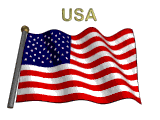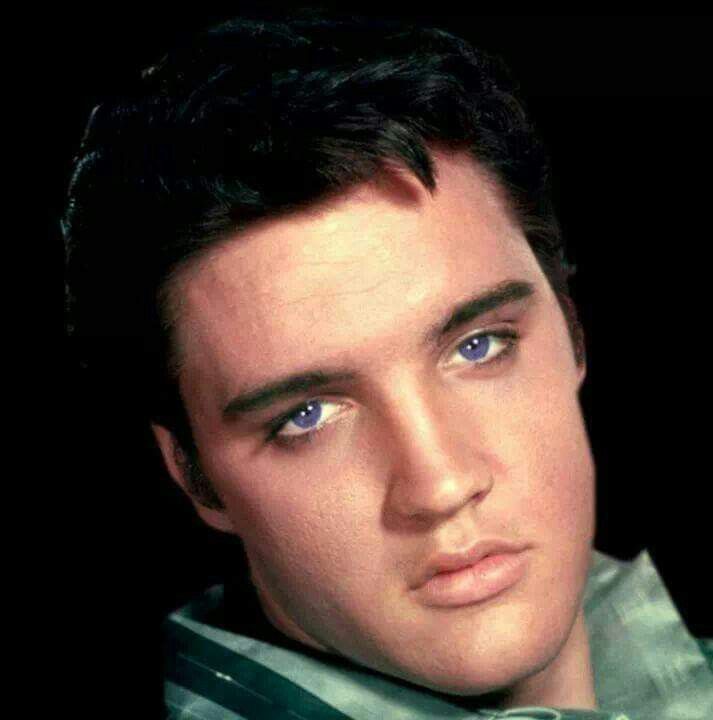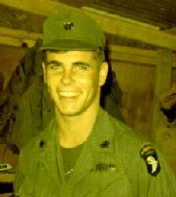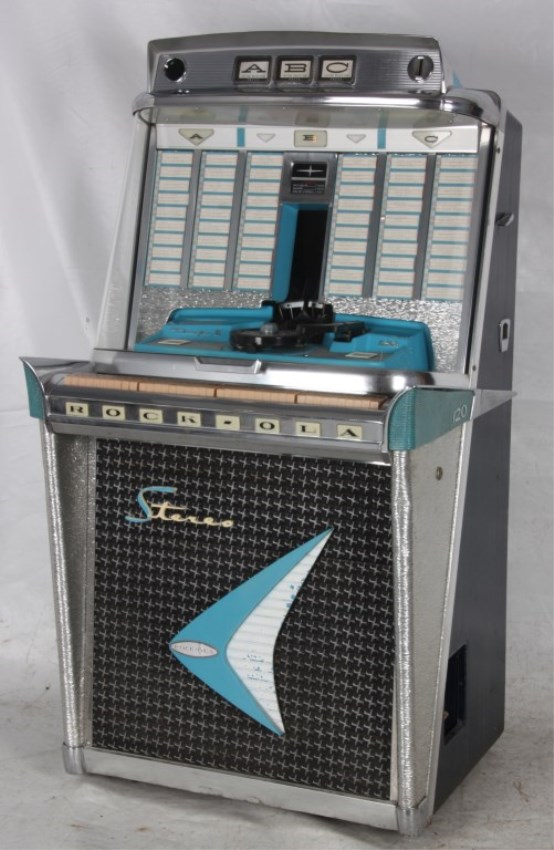

The 60s Official Site
"Where Music is Our Middle Name"
Quick Links
Soundtrack of the 60s with Neal Stevens
Todays Trivia Question. Your Daily Oldies Fix Top Ten Countdown Solid Gold Memories Jukebox Music
Vibration of a Nation Remember When Television of the 50s and 60s Do You Remember These 60s Slang
Things You Just Don't Hear Anymore 60s TV Commercials Chickenman Episodes Woodstock This Weeks Number One Hits
The Early Years of Rock and Roll Vietnam War Myths
All the content menu is listed on the left menu border bar
Tribute to Elvis Presley
My mother and my favorite performer of all time was Elvis Presley. Who can deny what this legend has accomplished? Elvis Presely was born in the humblest of circumstances, to Vernon and Gladys Presley in a two-room house in Tupelo, Mississippi on January 8, 1935. His twin brother, Jessie Garon, was stillborn, leaving Elvis to grow up as an only child. He and his parents moved to Memphis, Tennessee in 1948. Elvis graduated from Humes High School there in 1953. Initial influences came through his family's attendance at the Assembly of God, a Pentecostal Holiness church. Rolling Stone wrote: "Gospel pervaded Elvis' character and was a defining and enduring influence all of his days." During breaks at recording sessions or after concerts, Presley often joined in private with others for informal gospel music sessions. The young Presley frequently listened to local radio; his first musical hero was family friend Mississippi Slim, a hillbilly singer with a radio show on Tupelo’s WELO. Presley performed occasionally on Slim’s Saturday morning show, Singin’ and Pickin’ Hillbilly. "He was crazy about music... That’s all he talked about," recalls his sixth grade friend, James Ausborn, Slim’s younger brother. Before he was a teenager, music was already Presley’s "consuming passion." J. R. Snow, son of 1940s country superstar Hank Snow, recalls that even as a young man Presley knew all of Hank Snow’s songs, "even the most obscure".In Memphis, Presley went to record stores that had jukeboxes and listening booths, playing old records and new releases for hours. He was an audience member at the all-night black and white "gospel sings" downtown. Memphis Symphony Orchestra concerts at Overton Park were another Presley favorite, along with the Metropolitan Opera. His small record collection included Mario Lanza and Dean Martin. Presley later said, "I just loved music. Music period."
Presley "was an untrained musician who played entirely by ear. 'I don't read music,' he confessed, 'but I know what I like.' ... Because he was not a songwriter, Presley would rarely have material prepared for recording sessions..." When later, as a young singer, he "ventured into the recording studio he was heavily influenced by the songs he had heard on the jukebox and radio." On July 18, 1953, Presley went to Sun Records' Memphis Recording Service to record "My Happiness" with "That's When Your Heartaches Begin", supposedly a present for his mother. During his initial introduction at Sun Records, assistant Marion Keisker asked him who he sounded like. Presley replied: "I don't sound like nobody." On January 4, 1954, he cut a second acetate. Sun Records boss Sam Phillips was on the lookout for someone who could deliver a blend of black blues and boogie-woogie music; he thought it would be very popular among white people. When Phillips acquired a demo recording of "Without Love (There Is Nothing)" and was unable to identify the vocalist, Keisker reminded him about the young truck driver. She called him on June 26, 1954. Presley was not able to do justice to the song (though he would record it years later). Phillips would later recall that "Elvis was probably as nervous as anybody, black or white, that I had seen in front of a microphone." Despite this, Phillips invited local musicians Winfield "Scotty" Moore and Bill Black to audition Presley. Though they were not overly impressed, a studio session was planned. During a recording break, Presley began "acting the fool" first with Arthur Crudup's "That's All Right (Mama)". Phillips got them all to restart and began taping. This was the sound he had been looking for. The group recorded other songs, including Bill Monroe's "Blue Moon of Kentucky". Upon finishing the recording session, according to Scotty Moore, Bill Black remarked, "Damn. Get that on the radio and they'll run us out of town". "That's All Right" was aired on July 8, 1954, by DJ Dewey Phillips. Listeners to the show began jamming the phone lines, eager to find out who the singer was.The DJ mispronounced Presley's apparently unusual name as "Elton Preston.") The interest was such that Phillips played the demo fourteen times. During an interview on the show, Phillips asked Presley what high school he attended—to clarify Presley's color for listeners who assumed he must be black. After its release, both sides of "That's All Right"/"Blue Moon of Kentucky" began to chart across the South. Moore and Black began playing regularly with Presley. They gave a few performances in July 1954 to promote the Sun single at the Bon Air, a rowdy music club where the band was not well-received. On July 30 the trio, billed as The Blue Moon Boys, made their first paid appearance at the Overton Park Shell, with Slim Whitman headlining. A nervous Presley's legs were said to have shaken uncontrollably during this show: his wide-legged pants emphasized his leg movements, apparently causing females in the audience to go "crazy". Scotty Moore claims it was just the natural way he moved and had nothing to do with "nerves." Presley consciously incorporated similar movements into future shows. DJ and promoter Bob Neal became the trio's manager (replacing Scotty Moore). Moore and Black left their band, the Starlight Wranglers and, from August through October 1954, appeared with Presley at The Eagle's Nest. Presley debuted at the Grand Ole Opry in Nashville on October 2; Hank Snow introduced Presley on stage. He performed "Blue Moon of Kentucky" but received only a polite response. Afterwards, the singer was allegedly told by the Opry's Jim Denny: "Boy, you’d better keep driving that truck.", though others deny it was Denny. Country music promoter and manager Tillman Franks booked Presley for the Louisiana Hayride on October 16. Before Franks saw Presley, he referred to him as "that new black singer with the funny name". During Presley's first set, the reaction was muted; for the second, Franks advised Presley to "Let it all go!" As house drummer D.J. Fontana (who had worked in strip clubs) complemented Presley's movements with accented beats and Bill Black engaged in his usual stage antics, the crowd was more responsive. According to one source, "Audiences had never before heard such music... or seen anyone who performed like Presley either. The shy, polite, mumbling boy gained self-confidence with every appearance... People watching the show were astounded and shocked, both by the ferocity of his performance, and the crowd’s reaction to it... Roy Orbison saw Presley for the first time in Odessa, Texas: 'His energy was incredible, his instinct was just amazing... I just didn’t know what to make of it. There was just no reference point in the culture to compare it.'" Sam Phillips said Presley "put every ounce of emotion ... into every song, almost as if he was incapable of holding back." By August 1955, Sun Studios had released ten sides credited to "Elvis Presley, Scotty and Bill", all typical of the developing Presley style. That style proved hard to categorize; he was billed or labeled in the media as "The King of Western Bop", "The Hillbilly Cat" and "The Memphis Flash". He was also dubbed "Elvis the Pelvis" which Presley disliked, calling it "one of the most childish expressions I ever heard." On August 15, 1955, "Colonel" Tom Parker became Presley's manager, signing him to a one year contract plus renewals. Several record labels had shown interest in signing Presley and, by the end of October 1955, three major labels had made offers up to $25,000. On November 21, 1955, Parker and Phillips negotiated a deal with RCA Victor Records to acquire Presley's Sun contract for an unprecedented $40,000, $5,000 of which was a bonus for the singer for back royalties owed to him by Sun Records (Presley, at 20, was officially still a minor, so his father had to sign the contract). By December 1955, RCA had begun to heavily promote its newest star, and by the month's end had re-released all of his Sun recordings. To increase the singer's exposure, Parker finally brought Presley to television (In March 1955, Presley had failed an audition for Arthur Godfrey's Talent Scouts). He booked six Dorsey Brothers' Stage Show appearances (CBS), beginning January 28, 1956, when Presley was introduced by Cleveland DJ Bill Randle. Parker also obtained a lucrative two-show deal with Milton Berle (NBC). On January 10, Presley made his first recordings for RCA in Nashville, Tennessee. The session produced "Heartbreak Hotel/I Was The One" which was released on January 27. The public reaction to "Heartbreak Hotel" prompted RCA to release it as a single in its own right (February 11). By April it had hit number one in the U.S., selling in excess of one million copies. On March 23, RCA Victor released Elvis Presley, his first album. Like the Sun recordings, the majority of the tracks were country songs. On April 1, Presley launched his acting career with a screen-test for Paramount Pictures. His first motion-picture, Love Me Tender, was released on November 21 .Presley appeared on The Milton Berle Show from the deck of the USS Hancock in San Diego on April 3. His performance was cheered by a live audience of appreciative sailors and their dates. A few days after this appearance, a flight taking Presley's band to Nashville for a recording session left all three badly shaken (the plane lost an engine and almost went down over Texas). After more hectic touring, Presley returned to The Milton Berle Show on June 5 and performed "Hound Dog" (without his guitar). Singing it uptempo, he then began a slower version. His exaggerated, straight-legged shuffle around the microphone stand stirred the audience—as did his vigorous leg shaking and hip thrusts in time to the beat. Presley's "gyrations" created a storm of controversy—even eclipsing the 'communist threat' headlines prevalent at the time. The press described his performance as "vulgar" and "obscene". Presley was obliged to explain himself on the local New York City TV show Hy Gardner Calling: "Rock and roll music, if you like it, and you feel it, you can't help but move to it. That's what happens to me. I have to move around. I can't stand still. I've tried it, and I can't do it." From April 23, Presley was scheduled to perform four weeks at the New Frontier Hotel and Casino on the Las Vegas Strip—billed this time as "the Atomic Powered Singer" (Since Nevada was the home of the U.S.'s atomic weapons testing, Parker thought the name would be catchy). His shows were so badly received by critics and the conservative guests, that Colonel Parker cut short the engagement from four weeks to two. D.J. Fontana said, "I don't think the people there were ready for Elvis..... We tried everything we knew. Usually Elvis could get them on his side. It didn't work that time". While in Vegas, Presley saw Freddie Bell and the Bellboys live, and liked their version of Leiber and Stoller's "Hound Dog". By May 16, he had added the song to his own act. The Berle shows drew such huge ratings that Steve Allen (NBC), not a fan of rock and roll, booked him for one appearance in New York on July 1. Allen wanted "to do a show the whole family can watch" and introduced a "new Elvis" in white bow tie and black tails. Presley sang "Hound Dog" for less than a minute to a Basset Hound in a top hat. According to one author, "Allen thought Presley was talentless and absurd... [he] set things up so that Presley would show his contrition..." The day after (July 2), the single "Hound Dog" was recorded and Scotty Moore said they were "all angry about their treatment the previous night". (Presley often referred to the Allen show as the most ridiculous performance of his career.) A few days later, Presley made a "triumphant" outdoor appearance in Memphis at which he announced: "You know, those people in New York are not gonna change me none. I'm gonna show you what the real Elvis is like tonight." Country vocalists The Jordanaires accompanied Presley on The Steve Allen Show and their first recording session together produced "Any Way You Want Me", "Don't Be Cruel" and "Hound Dog". The Jordanaires would work with the singer through the 1960s. Though Presley had been unhappy, Allen's show had, for the first time, beaten The Ed Sullivan Show in the ratings, causing a critical Sullivan (CBS) to book Presley for three appearances for an unprecedented $50,000. Presley's first Ed Sullivan appearance (September 9, 1956) was seen by some 55–60 million viewers. "Compared to moments on the Dorsey shows and on the Berle show, it was ice cream." On the third Sullivan show, Presley sang only slow paced ballads and a gospel song. The fact that Presley was only shown from the waist up and "stepped out in the outlandish costume of a pasha, if not a harem girl" during this last broadcast has led to claims that Sullivan had "censored" or even "buried" the singer, or that Colonel Parker had orchestrated the episode to generate publicity. In spite of any misgivings about the controversial nature of his performing style (see 'Sex symbol'), Sullivan declared at the end of the third appearance that Presley was "a real decent, fine boy" and that they had never had "a pleasanter experience" on the show. On December 4, Presley dropped into Sun Records where Carl Perkins and Jerry Lee Lewis were recording. Sam Phillips made sure the session of the three performing was recorded; the results would later appear on a bootlegged recording titled The Million Dollar Quartet in 1977 (Johnny Cash is often thought to have performed with the trio, but he was only present briefly at Phillips' instigation for a photo opportunity). RCA would eventually iron out legal difficulties and release an authorized version a few years later. On December 29, Billboard revealed that Presley had placed more songs in the Top 100 than any other artist since chart records began. This news was followed by a front page report in the Wall Street Journal on December 31, that suggested Presley merchandise had grossed more than $22 million in sales. By 1956, Elvis Presley was an international sensation. With a sound and style that uniquely combined his diverse musical influences and blurred and challenged the social and racial barriers of the time, he ushered in a whole new era of American music and popular culture. He starred in 33 successful films, made history with his television appearances and specials, and knew great acclaim through his many, often record-breaking, live concert performances on tour and in Las Vegas. Globally, he has sold over one billion records, more than any other artist. His American sales have earned him gold, platinum or multi-platinum awards for 150 different albums and singles, far more than any other artist. Among his many awards and accolades were 14 Grammy nominations (3 wins) from the National Academy of Recording Arts & Sciences, the Grammy Lifetime Achievement Award, which he received at age 36, and his being named One of the Ten Outstanding Young Men of the Nation for 1970 by the United States Jaycees. Without any of the special privileges his celebrity status might have afforded him, he honorably served his country in the U.S. Army. His talent, good looks, sensuality, charisma, and good humor endeared him to millions, as did the humility and human kindness he demonstrated throughout his life. Known the world over by his first name, he is regarded as one of the most important figures of twentieth century popular culture. Elvis died at his Memphis home, Graceland, on August 16, 1977. It is so hard for me to accept the fact he now has been gone for over 30 years but his music will always be played and he will always be remembered as a great entertainer. Elvis' music will remain solid gold as was his heart.
|
|






